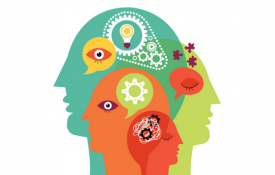-
Artificial Intelligence Helps in Learning How Children Learn
Scientific American: In science, we use statistics and experiments to figure out causal relationships. Researchers in artificial intelligence and machine learning have started to design software that allows computers to learn about causes the way that scientists do. Over the past 15 years, researchers in my laboratory have shown that children learn in much the same way. In one experiment, we showed preschool children a simple machine with a switch on one side and two disks that spin on top. Then we showed them what would happen if you performed some experiments on the machine; for example, you take off one disk, flip the switch and see what happens to the other disk.
-

Behavior and Brain Sciences Help Optimize Labor Programs
A new program from the US Department of Labor aims to accelerate change within the large government agency.
-
Science says you should take that vacation now
Chicago Booth Review: Western culture has long honored the notion that work should come before pleasure—a vacation should, in theory, be the reward of many long nights at the office. But research suggests it’s time to stop always putting work ahead of fun. Chicago Booth’s Ed O’Brien and research assistant Ellen Roney find that people enjoy leisure just as much even when they know work will follow. Most people expect difficult or boring tasks ahead will spoil pleasurable experiences. In a series of surveys, respondents consistently said they would get less out of leisure if work loomed. Read the whole story: Chicago Booth Review
-
Poor extroverts spend proportionately more on buying status
The Economist: EVEN when money is short, an occasional high-end experience is tempting. From luxury clothes to a round of golf, splurging not only makes people feel better, but may also enhance their status with their friends and relations. And for those without much status to start with, that seems to matter more. Researchers have long observed that people who have low incomes spend a bigger fraction of their earnings on things they perceive as status-enhancing than do those with money in more abundance. Read the whole story: The Economist
-

Low-Income Extraverts Spend More on Status Than Introverted Peers
Banking data indicate that the types of goods and services that low-income individuals buy may depend, in part, on personality.
-
Taking Photos Won’t Take You Out of the Moment, Study Suggests
The New York Times: On Monday, I will be one of millions watching the moon punch a hole in the sun during the Great American Eclipse of 2017. In preparation, I’ve been thinking about how I want to spend my roughly two minutes of totality, when day surrenders, briefly, to coronal night. Should I try to capture my experience with photos? Or should I soak in the moment as deeply as I can? These two goals may not actually be in opposition, according to a study in this month’s issue of Psychological Science. In several experiments, researchers found that taking photos during an experience helped people remember visuals more accurately, even when they didn’t revisit their photos.

